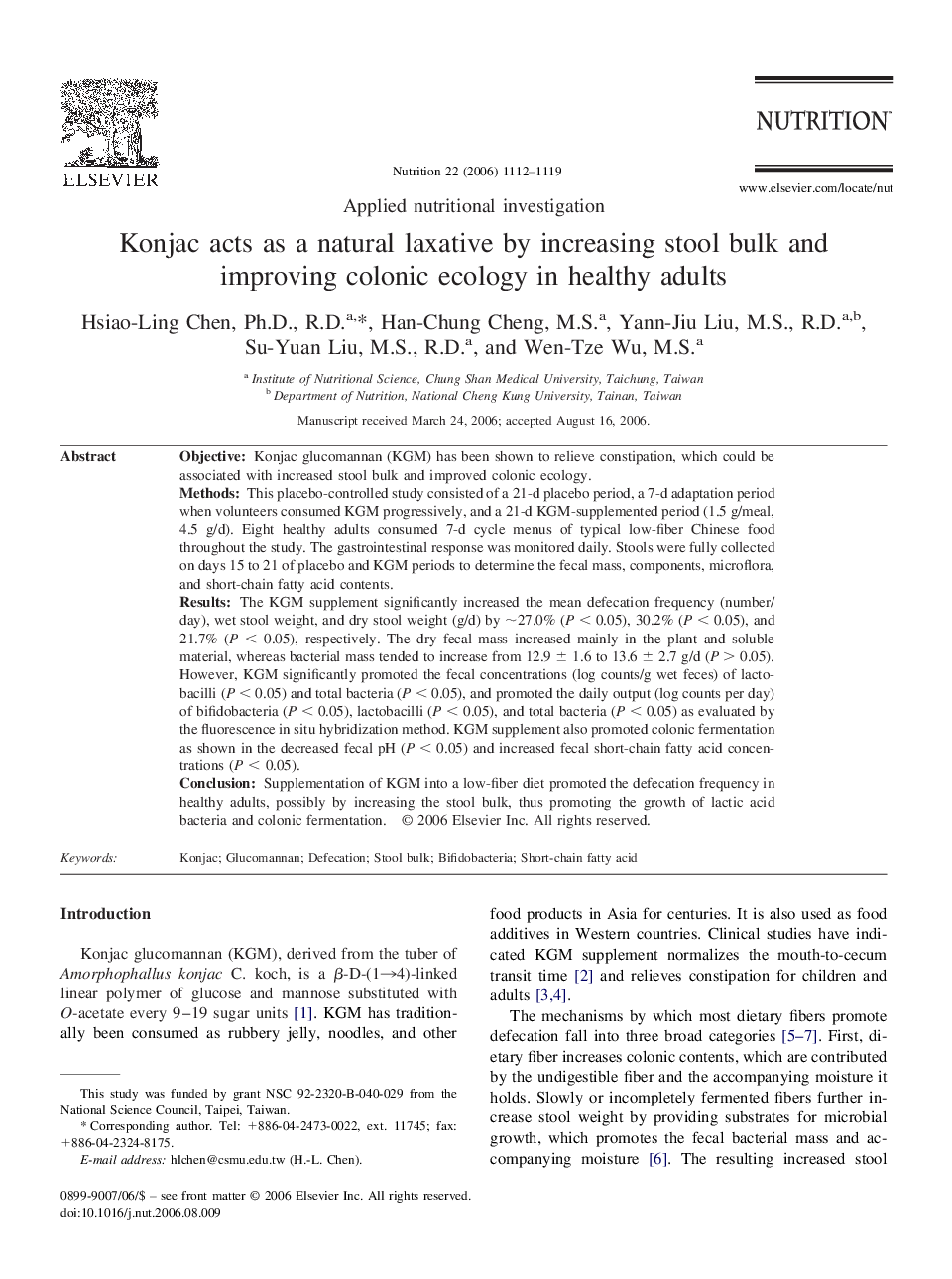| Article ID | Journal | Published Year | Pages | File Type |
|---|---|---|---|---|
| 3277681 | Nutrition | 2006 | 8 Pages |
ObjectiveKonjac glucomannan (KGM) has been shown to relieve constipation, which could be associated with increased stool bulk and improved colonic ecology.MethodsThis placebo-controlled study consisted of a 21-d placebo period, a 7-d adaptation period when volunteers consumed KGM progressively, and a 21-d KGM-supplemented period (1.5 g/meal, 4.5 g/d). Eight healthy adults consumed 7-d cycle menus of typical low-fiber Chinese food throughout the study. The gastrointestinal response was monitored daily. Stools were fully collected on days 15 to 21 of placebo and KGM periods to determine the fecal mass, components, microflora, and short-chain fatty acid contents.ResultsThe KGM supplement significantly increased the mean defecation frequency (number/day), wet stool weight, and dry stool weight (g/d) by ∼27.0% (P < 0.05), 30.2% (P < 0.05), and 21.7% (P < 0.05), respectively. The dry fecal mass increased mainly in the plant and soluble material, whereas bacterial mass tended to increase from 12.9 ± 1.6 to 13.6 ± 2.7 g/d (P > 0.05). However, KGM significantly promoted the fecal concentrations (log counts/g wet feces) of lactobacilli (P < 0.05) and total bacteria (P < 0.05), and promoted the daily output (log counts per day) of bifidobacteria (P < 0.05), lactobacilli (P < 0.05), and total bacteria (P < 0.05) as evaluated by the fluorescence in situ hybridization method. KGM supplement also promoted colonic fermentation as shown in the decreased fecal pH (P < 0.05) and increased fecal short-chain fatty acid concentrations (P < 0.05).ConclusionSupplementation of KGM into a low-fiber diet promoted the defecation frequency in healthy adults, possibly by increasing the stool bulk, thus promoting the growth of lactic acid bacteria and colonic fermentation.
